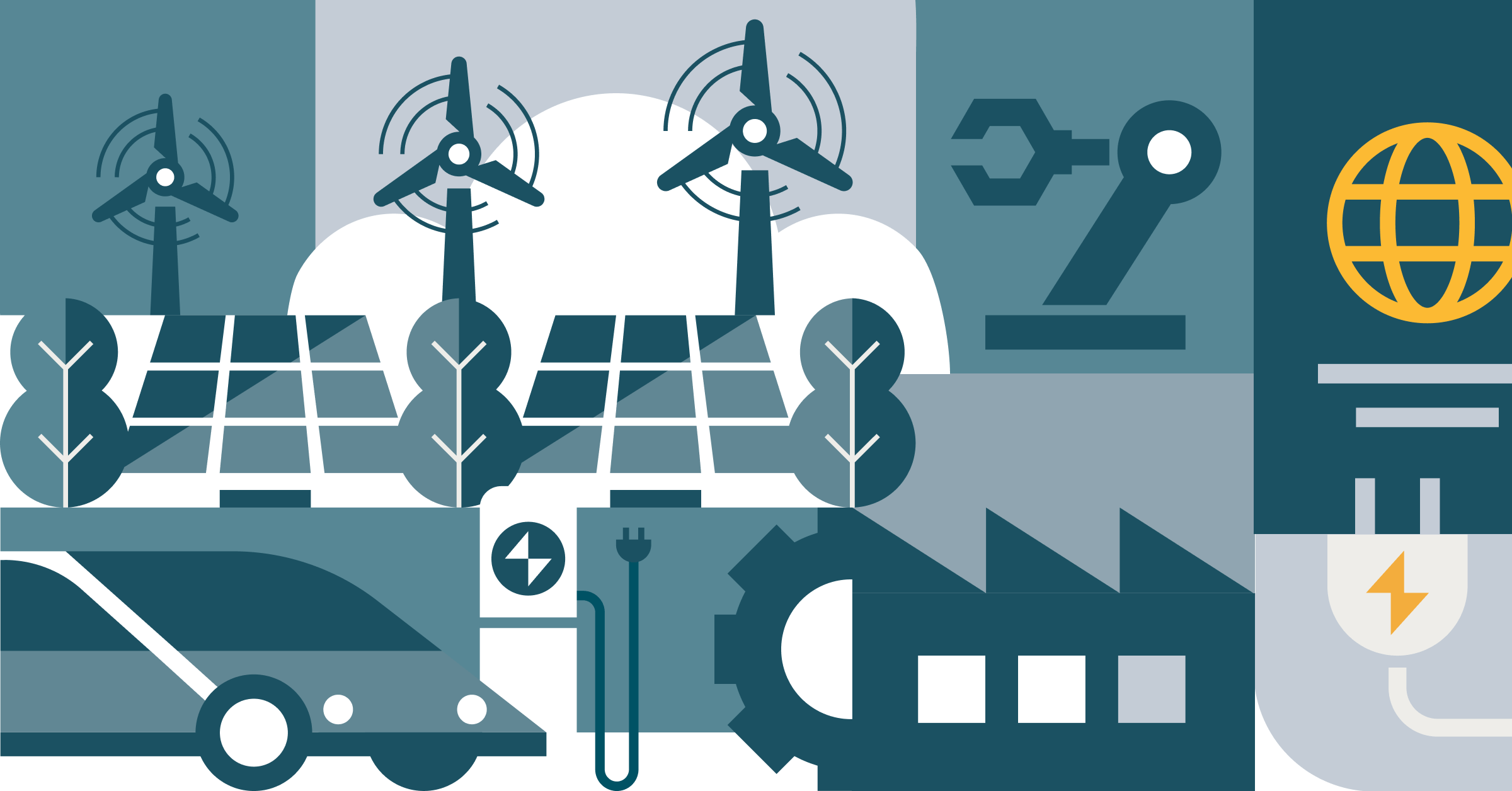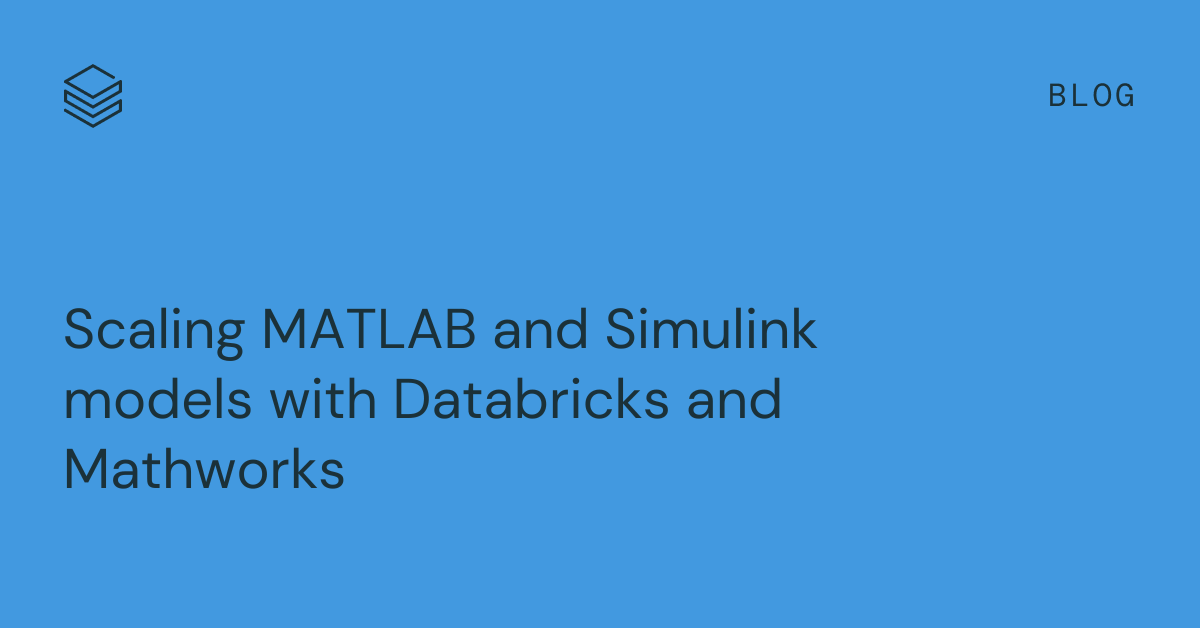EVPassport: Charging Ahead to the Future with Databricks

Summary
EVPassport is transforming the electric vehicle charging experience with a comprehensive Infrastructure-as-a-Service model. They use data to optimize charger utilization and have integrated Databricks to enhance their data intelligence capabilities; they appreciate how tools like AI/BI Genie and Databricks Assistant make their workflow easier. They are in the process of integrating AI for predictive maintenance, internal insights, and driver support.
Established in 2020, EVPassport aims to transform the electric vehicle charging experience. Specializing in multi-family residences, hospitality, retail, workplaces, and commercial parking environments, EVPassport delivers a comprehensive Infrastructure-as-a-Service model. This all-inclusive approach ensures our clients receive everything they need to deploy and manage EV charging stations: hardware, software, installation, maintenance, and support.
Reliance on Data to Advance EV Charger Ecosystem
Given the nature of our industry at EVPassport, we are intensely focused on the utilization of our chargers. One of the most inflated metrics in the industry is often how much chargers are being used. However, this is also a critical driver for our business, which is why we base our approach on energy-based utilization. For example, we analyze what it means for an 11-kilowatt unit to deliver 11 kilowatt-hours per hour over a 24-hour period, 365 days a year. We assess the utilization of each charger and break down the revenue it generates. This includes evaluating what the charger brings in for both the site and us. By integrating this with metadata, we can provide comprehensive insights to our customers. We emphasize destination charging, where visitors aren't drawn to a location solely for EV charging, the way they would be to a gas station. Instead, they visit these areas for amenities such as movie theaters or shopping, and it just so happens they can charge their cars while there. This enhances the overall value of our chargers, as noted in a recent study by Nature that found EV chargers boost spending in local businesses by thousands of dollars a year.
Immediate Impacts from Databricks Integration
Databricks is a recent addition to EVPassport’s operations, implemented earlier this year. We recognized a significant opportunity to lead with data in our industry and see the Databricks Data Intelligence Platform giving us the ability to support our internal processes, enable our customers, and, eventually, the public to gain deeper insights into the factors driving electric vehicle adoption.
A key factor in our adoption of the Databricks Data Intelligence Platform was the ability to integrate additional data sources into the platform. For example, we use Stripe to handle our payments, Salesforce for CRM, support ticket management and sales operations, and MongoDB to store back-end data on kilowatt hours dispensed by our chargers, idle time, charger types, and other related metadata. Before implementing Delta Lake from Databricks, we faced challenges in directing both analyst teams and others familiar with self-serve models to export and create models effectively. Now, we've fed all of our complex transformations into Databricks, using Tableau for visualization, and are seeing dramatic gains in efficiency. As an example, our end-of-month reporting process would take half a day to complete before Databricks, and often in a way that was hard to use and understand. Now, with Databricks, those reports are delivered in minutes, in the format we need to present at the executive level.
Prior to implementing Databricks, we were working with three to four disparate systems. The manual effort required to integrate and format data from these separate sources was significantly hindering our delivery speed. Now our operations are a lot smoother, and we are able to provide insights to other departments. — Thomas Kim, Manager, Data Analytics at EVPassport
A Data and AI “North Star” to inform future operations
The charging industry is currently not at the forefront of data utilization. Despite the perception of our industry as being tech-forward, due to the complexity of our business model, we capture a lot of data across our journey on multiple platforms. Now that we have achieved clean data pipelines looking backward, how do we use them to look forward? We see ML and AI as the natural solution. Although we are in the exploratory stages of expanding our capabilities, the Databricks Mosaic AI tools available in the Databricks Platform are making it easier to begin our AI initiatives. We are targeting three initial AI proof of concepts for early next year:
Predictive Maintenance is one of the strategic pillars of our company. If we have the most reliable network, it strengthens our brand equity and grows enterprise value. — Kyle Stewart, SVP, Corporate Operations at EVPassport
1: Predictive Maintenance for EV chargers: The main problem users face is that chargers are down, and the operators aren’t aware of the issue. One of our initiatives is to leverage Databricks’ ability to process large amounts of data and be ahead of the curve when it comes to maintenance so we can address issues before they arise
2. Internal Insights: Now that we’ve completed the data engineering component of our Databricks implementation, we want to use LLMs to be able to accept input from users in natural language, and then create SQL queries to find out answers in datasets that can be easily accessed by our executive team.
3. Driver Support: Our external application for driver support is currently hosted in Salesforce Einstein; our engineers are currently doing a migration analysis, which is made easier by the fact that both Databricks and Salesforce are Python-based.
Our eventual goal is to deploy an army of AI agents on our team that enable our colleagues to request the data they need, rather than having our data teams go in and pull it manually. As we begin our AI journey, we are focused on meeting quality and accuracy goals; once we go live and have more data points, latency and cost will be more important. We want to support decision-making across the company by democratizing access to both data and insights. Our integration of the Databricks Platform and Mosaic AI tools will play a critical role in making this happen.
To learn more about EVPassport’s ecosystem of charging solutions, visit: https://www.evpassport.com/
This blog post was jointly authored by Kyle Stewart (EVPassport), Thomas Kim (EVPassport), Nina Williams (Databricks) and Amelia Westberg (Databricks).
Never miss a Databricks post
What's next?

Data Science and ML
June 12, 2024/8 min read
